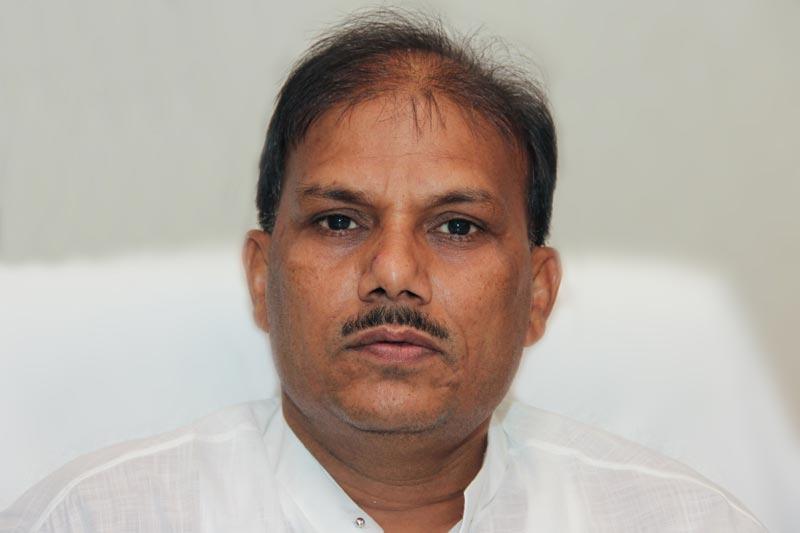 Image
Image
Central, state government need to step in to save the real estate industry: Jaiswal
Kolkata: Laxman Jaiswal, Chairman and Managing Director of Ascon India Infrastructure Limited, a real estate giant of Eastern India, recently outlined the measures that should be adopted to come out of the mess that the real estate sector is in present times, in the last quarter of the financial year and he felt that the measures were urgently needed for an immediate redress.
He said a few doses of vaccination to boost the ailing sector must be immediately made in form of Stamp Duty and Registration at the rate of 8% and GST at the rate of 5% should be merged immediately, lnput Credit should be allowed immediately, Real Circle Rate should be imposed after survey of locality by registered survey agency, Transaction to allow minimum 10% plus minus on circle rate and Super Built up area to be abolished in Registration process by state Government which is also contradictory to the provisions of HIRA, the West Bengal state Government Act governing the real estate sector.
He felt that several not stated factors like profession tax, fringe benefits tax of staff, freebies to sanctioning authorities on many occasions are also impediments and these are not even taken into account and then developers are forced to purchase the construction materials from local people which are most often highly-priced inferior materials.
Over and above NBFC and banks are also not prepared to help the developers, he said.
Even in Denmark, banks are providing loans on the negative interest rate to encourage the Real Estate Business as there is so many ancillary industry involved in the said business, he added.
But the general perception in the minds of the public is that of the builders fleecing the customers, said Jaiswal.
He felt that there are several reasons for the slump with a negative growth in the real estate sector. According to National Housing Bank data, property prices in Mumbai and Bengaluru increased annually by just about 7.5% and 5.75% respectively between June 2013 and September 20I7.
In Delhi, prices actually fell by -0.70% annually during the same period. But beyond the data, we hear numerous stories of investors in distress with their money stuck in delayed projects.
The entire realty ecosystem is struggling to cope with this slowdown. Demand in real estate started declining from 2013. By 2016, it had hit an all-time low.
He concluded by stating that both the Central and State Governments are equally responsible for the decline of the real estate industry primarily thanks to the faulty tax structure governing the real Estate industry.
Top Headlines
-
News
PM Modi expresses displeasure over NCERT judiciary chapter, wants accountability fixed
February 26, 2026
-
News
Former New Zealand PM Jacinda Ardern to relocate to Australia amid growing Kiwi exodus
February 26, 2026
-
News
Major aviation boost for Kashmir: Cabinet clears development of a new Civil Enclave at Srinagar International Airport
February 24, 2026
-
News
India urges all nationals to leave Iran 'by available means' as US-Iran tension grows
February 23, 2026
-
News
Ind.AI: Sovereignty, jobs, energy and the What If?
February 20, 2026
-
News
From car diplomacy to global strategy: Modi, Macron upgrade IndiaFrance ties
February 17, 2026
-
News
Seva Teerth: PM Modi inaugurates new PMO, announces these key decisions on first day
February 13, 2026
-
News
Hero of Operation Sindoor: IAF vice chief hails Rafale ahead of mega 114-jet deal
February 11, 2026
-
News
'Govt surrendered before Trump, sold Bharat Mata: Rahul Gandhi attacks Centre over IndiaUS trade deal
February 11, 2026
-
News
Painful times in my marriage: Melinda Gates reacts to Bill Gates being named in Epstein Files
February 05, 2026





